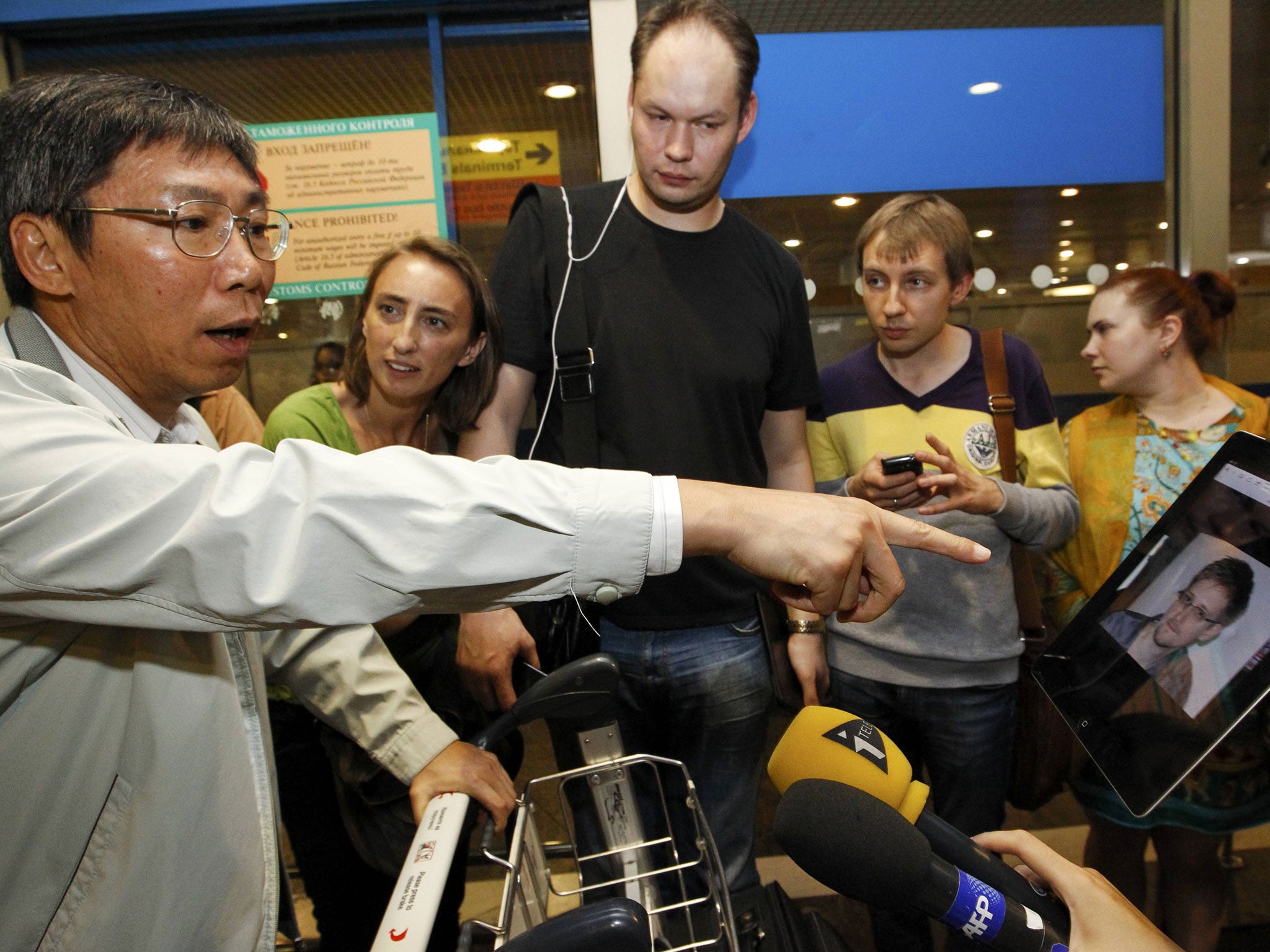Hong Kong risks US anger by giving Snowden clean exit

Your support helps us to tell the story
From reproductive rights to climate change to Big Tech, The Independent is on the ground when the story is developing. Whether it's investigating the financials of Elon Musk's pro-Trump PAC or producing our latest documentary, 'The A Word', which shines a light on the American women fighting for reproductive rights, we know how important it is to parse out the facts from the messaging.
At such a critical moment in US history, we need reporters on the ground. Your donation allows us to keep sending journalists to speak to both sides of the story.
The Independent is trusted by Americans across the entire political spectrum. And unlike many other quality news outlets, we choose not to lock Americans out of our reporting and analysis with paywalls. We believe quality journalism should be available to everyone, paid for by those who can afford it.
Your support makes all the difference.The Hong Kong government will not have endeared itself to the United States by giving a clean exit to Edward Snowden, the former contractor with the National Security Agency who has leaked secrets about its internet and telephone snooping programmes.
In short order, however, it has rid itself of a very hot legal and diplomatic potato.
On Saturday US officials called Hong Kong a “good partner of the United States in law enforcement matters”. It was one way of saying. “We expect you ‘to do the right thing’”.
But the territory has Beijing to think about as well as Washington and its idea of the ‘right thing’ was clearly different. Since the 1997 hand-over from Britain, Hong Kong has had considerable autonomy, but on matters defence or national security mainland China takes charge.
“It's a shocker,” commented Simon Young, a law professor with Hong Kong University. “I thought he was going to stay and fight it out. The US government will be irate.”
It is because American fury was inevitable that the territory’s government found not one but two ways to cover itself in the press communique released after the 30-year-old American boarded a plane for Moscow. It said he US request for the provisional warrant of arrest for him “did not fully comply with the legal requirements under Hong Kong law”. It also wanted to know more about Mr Snowden’s claim that the NSA has been spying on Hong Kong.
The territory’s extradition treaty with the US does raise complications because of exemptions in cases of ‘political crimes’. But Hong Kong seemed to say the US had mucked up the legal documentation that was meant to facilitate Snowden’s extradition. Because it “has yet to have sufficient information to process the request for provisional warrant of arrest, there is no legal basis to restrict Mr. Snowden from leaving Hong Kong,” the territory said.
Trickier diplomatically was the suggestion that Washington was in any event in no position throw stones or ask for any favours if indeed it has been intruding where it is not welcome on Hong Kong and Chinese networks. “The HKSAR Government has formally written to the US Government requesting clarification on earlier reports about the hacking of computer systems in Hong Kong by US government agencies,” the communique read.
In latest excerpts of an interview given to the South China Morning Post, Snowden suggests that the United States has just in the last year been spying for example both on the Tsinghua University in Beijing and Chinese University in Hong Kong because both campuses are major internet traffic hubs.
There was no direct White House reaction to the actions of Hong Kong, but a senior Obama administration official said, “Obviously this raises concerns for us and we'll continue to discuss with the authorities there.”
"Washington should come clean about its record first,” Xinhua, the official news agency for mainland China noted in an editorial meanwhile, saying the situation for Washington had become “awkward”. The US “owes ... an explanation to China and other countries it has allegedly spied on," it said. "It has to share with the world the range, extent and intent of its clandestine hacking programme.”
Join our commenting forum
Join thought-provoking conversations, follow other Independent readers and see their replies
Comments